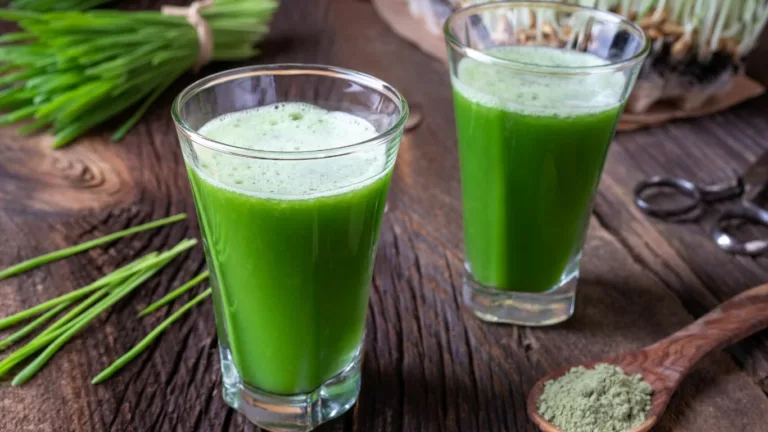Ginger Tea for Acid Reflux Relief: Powerful Natural Soothing Benefits
If you’ve ever felt that all-too-familiar burning sensation after a meal, you know how disruptive acid reflux can be. For years, I relied on antacids and late-night pacing until I stumbled on something surprisingly effective—ginger tea. It wasn’t some magic cure-all, but over time, this simple, earthy tea made a big difference in how often I experienced reflux and how intense those episodes were.
Why Ginger Tea Stands Out for Acid Reflux

Ginger isn’t just a flavorful kitchen staple—it’s one of the oldest herbal remedies in traditional medicine, particularly for digestive health. What makes it useful for acid reflux isn’t just folklore—it’s backed by its anti-inflammatory, anti-nausea, and pro-motility properties.
For people like me who deal with bloating, indigestion, or slow digestion after meals, ginger tea helps food move along faster through the stomach. That’s a big win—because the longer food lingers, the more pressure builds up in your digestive tract, pushing acid back into the esophagus. Ginger helps reduce that risk.
How Ginger Tea Helps Manage Reflux Naturally

Here’s how ginger tea works in favor of a reflux-free day:
- Reduces inflammation: Ginger’s bioactive compounds—especially gingerol—can calm inflamed digestive tissue and soothe the stomach lining.
- Supports gastric emptying: Faster digestion means less pressure buildup in the stomach, reducing reflux episodes.
- Relieves nausea and bloating: Ginger is especially helpful for people who experience reflux alongside mild nausea or abdominal pressure.
Personally, I noticed fewer late-night flare-ups and less post-meal discomfort when I drank a small cup about 30 minutes after eating.
How to Make Ginger Tea for Reflux Relief

Making ginger tea is simple, but a few tips can make it even more reflux-friendly:
- Use fresh ginger root, not powder or bottled ginger tea with additives.
- Slice 3–5 thin pieces and steep in hot (not boiling) water for 10 minutes.
- Let it cool slightly before drinking—it should be warm, not piping hot.
- Drink slowly, in small sips. Avoid chugging, especially on a full stomach.
Optional additions like fennel or chamomile can complement the calming effects—just make sure to avoid citrus, mint, or honey if those are reflux triggers for you.
When Ginger Tea Works Best

While everyone’s reflux pattern is different, ginger tea tends to work best when it’s timed with your digestion:
- After meals: A warm cup after eating supports digestion and reduces heaviness.
- Morning routine: Starting the day with ginger tea can help balance stomach acid levels before your first meal.
- During flare-ups: Ginger’s anti-inflammatory effects can soothe an irritated esophagus when symptoms arise.
One thing I learned the hard way—don’t overdo it. Too much ginger (especially concentrated) can be stimulating and may irritate the stomach lining in sensitive individuals. Stick to one to two cups a day.
Who Should Be Cautious with Ginger Tea?

While generally safe, ginger tea isn’t for everyone. You should speak with your doctor if:
- You’re taking blood thinners—ginger may increase bleeding risk.
- You have low blood sugar—ginger may lower it further.
- You’re pregnant or have gallbladder issues—always consult your provider first.
Moderation and awareness of how your body responds are key. Always introduce ginger tea gradually and monitor your symptoms closely.
Pairing Ginger Tea with a GERD-Friendly Diet

Ginger tea is even more effective when you combine it with small, low-acid meals, stress reduction, and smart timing. In fact, it’s often included in recommended herbal teas for acid reflux relief because of how well it complements other natural solutions like chamomile, slippery elm, and fennel.
If you’re building a natural routine for managing GERD symptoms, ginger tea is a powerful place to start—but it shines best as part of a broader reflux-friendly lifestyle.
Final Sip: Is Ginger Tea Right for You?

For me, ginger tea became a small but impactful habit that added comfort to my daily routine—and noticeably fewer nights spent pacing around with heartburn. While results may vary, this natural remedy is a worthy addition to any GERD-conscious lifestyle, especially when used consistently and mindfully.
If you’re curious about how ginger tea compares to other herbal options, or want to explore blends that provide broader relief, this detailed herbal tea guide covers the best teas for managing acid reflux naturally.

Camellia Wulansari is a dedicated Medical Assistant at a local clinic and a passionate health writer at Healthusias.com. With years of hands-on experience in patient care and a deep interest in preventive medicine, she bridges the gap between clinical knowledge and accessible health information. Camellia specializes in writing about digestive health, chronic conditions like GERD and hypertension, respiratory issues, and autoimmune diseases, aiming to empower readers with practical, easy-to-understand insights. When she’s not assisting patients or writing, you’ll find her enjoying quiet mornings with coffee and a medical journal in hand—or jamming to her favorite metal band, Lamb of God.







